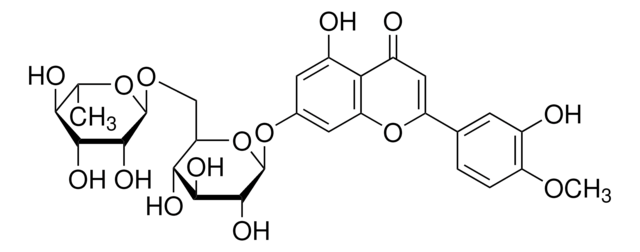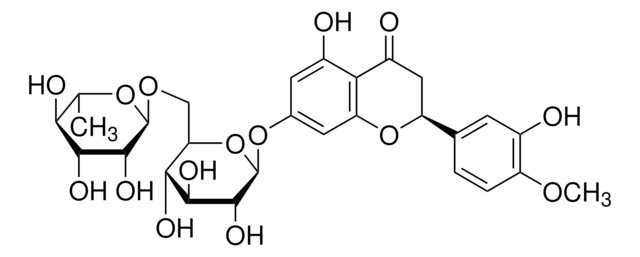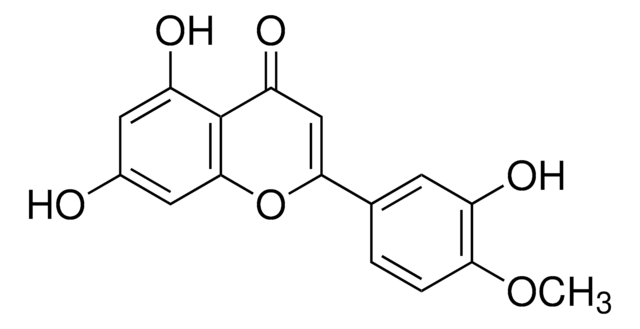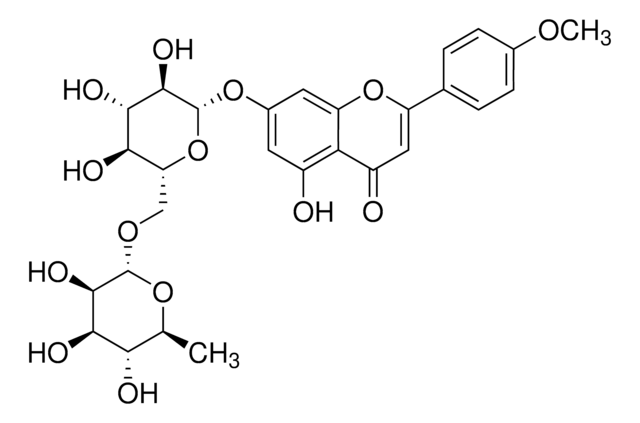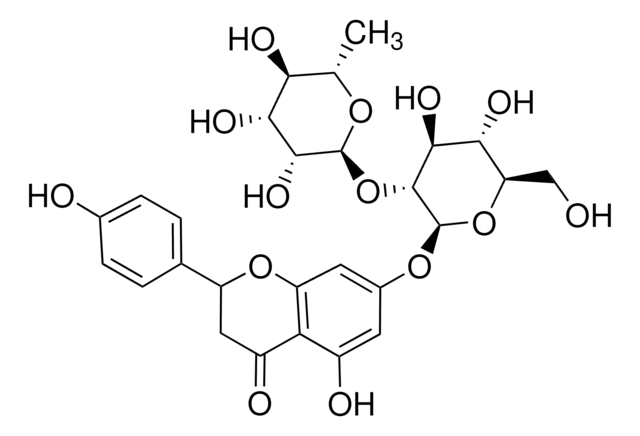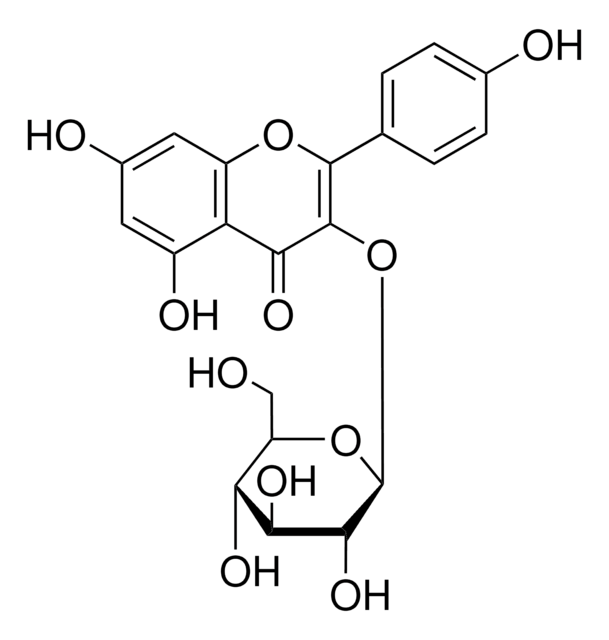61386
Diosmin
analytical standard
Synonym(s):
3′,5,7-Trihydroxy-4′-methoxyflavone 7-rutinoside, Barosmin, Buchu resin, Diosmetin 7-O-rhamnosylglucoside, Diosmetin 7-rutinoside
About This Item
Recommended Products
grade
analytical standard
Quality Level
Assay
≥90% (HPLC)
shelf life
limited shelf life, expiry date on the label
technique(s)
HPLC: suitable
gas chromatography (GC): suitable
impurities
≤10% water
application(s)
food and beverages
format
neat
storage temp.
2-8°C
SMILES string
COc1ccc(cc1O)C2=CC(=O)c3c(O)cc(O[C@@H]4O[C@H](CO[C@@H]5O[C@@H](C)[C@H](O)[C@@H](O)[C@H]5O)[C@@H](O)[C@H](O)[C@H]4O)cc3O2
InChI
1S/C28H32O15/c1-10-21(32)23(34)25(36)27(40-10)39-9-19-22(33)24(35)26(37)28(43-19)41-12-6-14(30)20-15(31)8-17(42-18(20)7-12)11-3-4-16(38-2)13(29)5-11/h3-8,10,19,21-30,32-37H,9H2,1-2H3/t10-,19+,21-,22+,23+,24-,25+,26+,27+,28+/m0/s1
InChI key
GZSOSUNBTXMUFQ-YFAPSIMESA-N
Looking for similar products? Visit Product Comparison Guide
Related Categories
General description
Application
Biochem/physiol Actions
Packaging
Other Notes
Storage Class Code
11 - Combustible Solids
WGK
WGK 3
Flash Point(F)
Not applicable
Flash Point(C)
Not applicable
Choose from one of the most recent versions:
Certificates of Analysis (COA)
Don't see the Right Version?
If you require a particular version, you can look up a specific certificate by the Lot or Batch number.
Already Own This Product?
Find documentation for the products that you have recently purchased in the Document Library.
Customers Also Viewed
Our team of scientists has experience in all areas of research including Life Science, Material Science, Chemical Synthesis, Chromatography, Analytical and many others.
Contact Technical Service